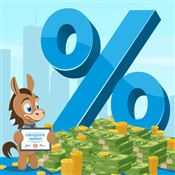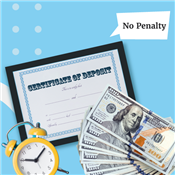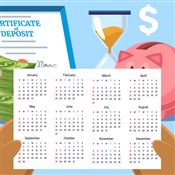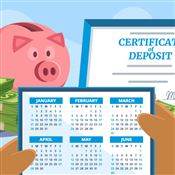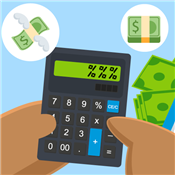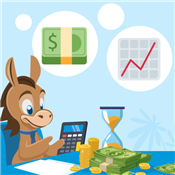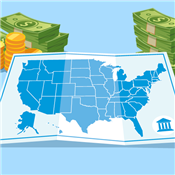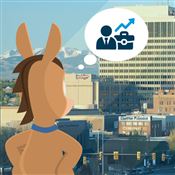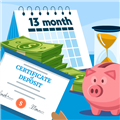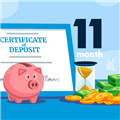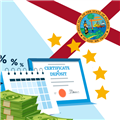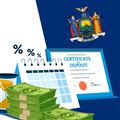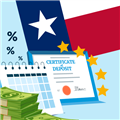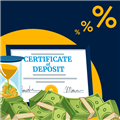Best CD Rates: Highest for February 2026
Ad Disclosure: This article contains references to products from our partners. We may receive compensation if you apply or shop through links in our content. This compensation may impact how and where products appear on this site. You help support CreditDonkey by using our links.
Unearth the highest CD rates and maximize your savings. This list showcases the banks with the most lucrative rates.
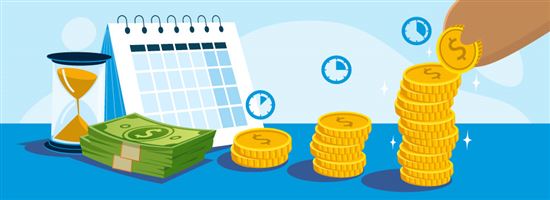 |
If you don't mind tying your money up for a while, CD rates are a super safe option.
And the best CD rates are usually at online banks. But they're not all created equal.
Take a look at which banks have the best interest rates. We'll also highlight the things you have to watch out for.
- Western Alliance Bank:
3-Month High-Yield CD - 4.00% APY - Quontic:
6 Month CD - 3.75% APY - Sallie Mae Bank:
14-Month High-Yield CD - 3.50% APY - CIT Bank:
13 Month CD - 3.25% APY
High-Yield CD Rates - Up to 4.00% APY
- No fees
- $1 minimum deposit
- FDIC insured
| Term | CD Rates |
|---|---|
| 3 Month | 4.00% APY |
| 4 Month | 3.50% APY |
| 5 Month | 3.40% APY |
| 6 Month | 3.50% APY |
| 9 Month | 3.40% APY |
| 12 Month | 3.30% APY |
CIT Bank No Penalty CD - 3.75% APY
- Option to withdraw full balance and interest after 7 days of CD funding date
- $1,000 minimum to open an account
- 11 months
- No monthly maintenance fee
- Member FDIC
CD Rates - Up to 3.75% APY
- $500 minimum opening deposit
- FDIC insured
| Term | CD Rates |
|---|---|
| 6 Month | 3.75% APY |
| 12 Month | 3.00% APY |
| 24 Month | 3.35% APY |
| 36 Month | 3.25% APY |
| 60 Month | 3.00% APY |
High-Yield CD - Up to $1,500 Bonus
- Select a savings offer and sign up: Choose and fund at least one high-yield savings account or CD on the Raisin platform to get started. Be sure to enter bonus code HEADSTART during sign-up to be eligible for a cash bonus.
- Deposit funds: The more you save, the more you can earn. Make a qualifying deposit(s) within 14 days of opening your account to set your bonus tier.
- Maintain your deposit(s): Maintain your deposit(s) for 90 days from your first deposit date to earn your bonus.
| Deposit | Cash Bonus |
|---|---|
| $10,000 - $24,999 | $70 |
| $25,000 - $49,999 | $175 |
| $50,000 - $99,999 | $350 |
| $100,000 - $199,999 | $750 |
| $200,000 or more | $1,500 |
Mission Valley Bank CD Rates - Up to 3.80% APY
- $1 minimum deposit
- No fees
- 24/7 online access to funds
- FDIC insured
| CD | APY |
|---|---|
| 3-Month No-Penalty CD | 3.80% APY |
What Is a CD?
 |
CD stands for Certificate of Deposit. Unlike a normal savings account (where you can continuously deposit and withdraw funds), CD's require you to deposit a fixed amount of money for a fixed amount of time. You get a set interest rate for the entire term.
Opening a CD is a commitment. Whatever term you choose, you must keep your funds there until maturity. If you want to take your money out sooner, you'll face steep penalties (usually a few months' worth of interest).
For example, if you know that in 1 year, you are taking a European vacation, you can put that money aside in a CD so you won't accidentally spend it before then.
CIT Bank Term CDs - Up to 3.75% APY
- Up to 3.75% APY
- $1,000 minimum opening deposit
- No monthly maintenance fee
- Member FDIC
| Term | CD Rates |
|---|---|
| 6 Month | 3.75% APY |
| 1 Year | 0.30% APY |
| 13 Month | 3.25% APY |
| 18 Month | 2.75% APY |
| 2 Year | 0.40% APY |
| 3 Year | 0.40% APY |
| 4 Year | 0.50% APY |
| 5 Year | 0.50% APY |
The information for CIT Bank Term CDs have been collected independently by CreditDonkey. The details on this page have not been reviewed or provided by the bank.
What to Look for in an Online CD Account
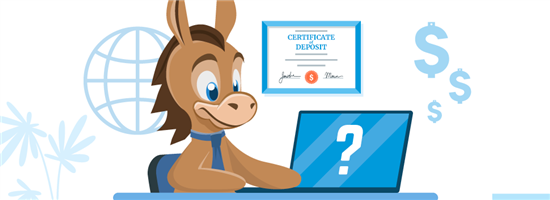 |
Before we get into the recommendations, there are some factors to consider when choosing a CD:
- Security
CDs are virtually risk-free because they are insured deposits. All the banks on this list are FDIC insured, which means if the bank defaults, the government will pay you back everything you had in the account (up to $250,000). - Minimum deposit
CDs often have higher minimum deposits. And you cannot make additional deposits once you have opened an account. Make sure you already have the money set aside and you're able to meet the deposit requirement. - Yield rate & term
You'll want the highest interest rate possible. Online banks usually pay much higher rates than the national average. Compare rates for the term length that suits your needs. We have picked CDs with the highest rates currently offered on the market.
Here are some of the top CD rates by term:
| Term | Bank and Yield Rate |
|---|---|
| 3 Month | Western Alliance Bank: |
| 6 Month | Quontic: |
| 1 Year | Western Alliance Bank: |
| 2 Year | Quontic: |
| 3 Year | Quontic: |
| 5 Year | Quontic: |
The longer the term, the heavier the penalty. If you're not sure about committing your money, then look for a bank that offers a No Penalty CD. Or choose a shorter term.
Best CD Rates
 |
The right CD for you depends on your goals. You may prefer flexibility or have a specific term in mind. Here's our list of the best high-yield CDs for every need.
Best CD Rates for 3 Months
- Western Alliance Bank:
3-Month High-Yield CD - 4.00% APY
Best CD Rates for 6 Months
- Quontic:
6 Month CD - 3.75% APY - Western Alliance Bank:
6-Month High-Yield CD - 3.50% APY
Best CD Rates for 1 Year
- Western Alliance Bank:
12-Month High-Yield CD - 3.30% APY - Quontic:
12 Month CD - 3.00% APY
Best CD Rates for 2 Year
- Quontic:
24 Month CD - 3.35% APY
Best CD Rates for 5 Years
- Quontic:
60 Month CD - 3.00% APY
Best Online CD Accounts
Here are some of the best banks for opening a CD.
Quontic Bank
CD Rates - Up to 3.75% APY
- $500 minimum opening deposit
- FDIC insured
| Term | CD Rates |
|---|---|
| 6 Month | 3.75% APY |
| 12 Month | 3.00% APY |
| 24 Month | 3.35% APY |
| 36 Month | 3.25% APY |
| 60 Month | 3.00% APY |
Quontic is a digital bank that puts innovation and creativity at its core. Their Bitcoin Rewards Checking account is the first of its kind–allowing folks to earn Bitcoin as they use their account.
Their CD offerings are just as impressive. The minimum deposit requirement is only $500.
However, watch out for the steep penalties if you need to withdraw early for any reason. For example, at Quontic, the penalty for withdrawing a 1-year CD early is interest for the full term.
Synchrony Bank: Best No-Minimum CD
Synchrony Bank: Certificate of Deposit
- Up to 4.00% APY
- Up to 5 years
- $0 minimum opening deposit
- Daily Compounding Interest
- FDIC Insured
Synchrony Bank CDs require no minimum deposit. They also offer more CD terms than the average bank, which lets you be more flexible with your financial goals. And you can easily set up a CD ladder.
Aside from regular CDs, you also have a No-Penalty CD and a Bump-Up CD to choose from. If you're building your retirement portfolio, go for their IRA CDs to get tax advantages.
Capital One 360
Capital One: Online CDs
- Up to 3.75% APY
- Up to 5 years
- $0 minimum opening deposit
- Daily Compounding Interest
- FDIC Insured
Capital One might be popular as a credit card issuer. But their 360 CD accounts have high rates for an online bank.
They offer CDs from 6 months to 5 years. Plus, no minimum deposit requirement. You can open a CD wherever you are, whenever you need to.
Western Alliance: Best Short-Term CD
Have a short-term savings goal you want to achieve within a year? Western Alliance Bank offers some of the highest rates for 1 year and under CDs that we can find. And the minimum is only $1.
Here's the thing: Western Alliance CDs are offered through Raisin, an online marketplace for savings accounts and CDs. So you have to open an account with Raisin and then choose Western Alliance Bank.
Raisin is completely legit and your deposits are FDIC insured.
CIT Bank: Best No-Penalty CD
CIT Bank Term CDs - Up to 3.75% APY
- Up to 3.75% APY
- $1,000 minimum opening deposit
- No monthly maintenance fee
- Member FDIC
| Term | CD Rates |
|---|---|
| 6 Month | 3.75% APY |
| 1 Year | 0.30% APY |
| 13 Month | 3.25% APY |
| 18 Month | 2.75% APY |
| 2 Year | 0.40% APY |
| 3 Year | 0.40% APY |
| 4 Year | 0.50% APY |
| 5 Year | 0.50% APY |
The information for CIT Bank Term CDs have been collected independently by CreditDonkey. The details on this page have not been reviewed or provided by the bank.
CIT Bank No Penalty CD - 3.75% APY
- Option to withdraw full balance and interest after 7 days of CD funding date
- $1,000 minimum to open an account
- 11 months
- No monthly maintenance fee
- Member FDIC
CIT Bank has a traditional CD with competitive rates for just a $1,000 minimum deposit.
But if you're not sure about committing your money, choose CIT's 11-month No Penalty CD with a great rate. You can withdraw your money with no penalty anytime after 7 days from funding.
Ally Bank: Best CD with Flexibility
Ally Bank: Term CDs
- Up to 3.75% APY
- $0 Minimum Opening Deposit
- Up to 5 years
- No monthly maintenance fee
- FDIC insured
- Daily Compounding Interest
Ally Bank doesn't offer the highest rates for their Standard CD, but it does have some flexible CD options.
If you don't want to be locked in, then these are worth looking into. And there is no minimum deposit requirement.
Ally Bank: Raise Your Rate CDs
- 3.50% APY
- 2 or 4-Year Terms
- Opportunity to increase your rate once over the 2-year term or twice over the 4-year term
- $0 minimum opening deposit
- $0 monthly maintenance fee
- FDIC insured
- Daily compounding interest
With Ally's Raise Your Rate CDs, you have the option to increase your interest rate once over a 2-year term (or twice over a 4-year term). This "bump up" is great if the rate happens to increase during your term and you want to avoid losing money due to inflation.
Ally Bank: No Penalty CD
- Withdraw full balance and interest after 6 days of CD funding date without penalty
- 3.00% APY
- 11-month term
- No monthly maintenance fee
- FDIC insured
- Daily compounding interest
Ally Bank also offers a No Penalty CD, where you can withdraw the funds anytime without a penalty. The rate isn't the highest, but if you're a commitment-phobe, you may appreciate the flexibility.
You may just want a normal savings account with a higher rate. Ally has that, too.
For high rates on 5-year CDs, check out: First Internet Bank, M.Y. Safra Bank, and Marcus by Goldman Sachs.
Alliant Credit Union: Best Jumbo CDs
Jumbo CD
- Jumbo certificates if you deposit $75,000 or more
- Funds are insured up to $250,000 by NCUA
| Term | APY |
|---|---|
| 3-month | 3.10% |
| 6-month | 3.90% |
| 12-month | 3.80% |
| 18-month | 3.65% |
| 24-month | 3.70% |
| 36-month | 3.70% |
| 48-month | 3.70% |
| 60-month | 3.70% |
Online credit unions like Alliant offer a full range of banking products and services. And that includes CDs with stellar rates.
If you're willing to tie up more money for 1-3 years, you'll love Alliant's rates on jumbo CDs. They offer higher rates on some of their CDs if you put in at least $75,000 - that's lower than the average $100,000 minimum deposit for most jumbo CDs.
You can join Alliant Credit Union by becoming a member of Foster Care to Success. Alliant will even pay the $5 membership fee on your behalf.[1]
Jumbo CDs are a great, safe way to store a large amount of money you'll need in the near future (like for a house down payment). They're also a good option for making some extra money fast. You can open a Jumbo CD for just 3 months and get some cash quickly from the high interest.
Other CDs to Consider
Here are a few more choices:
Marcus by Goldman Sachs ($500 minimum): Goldman Sachs, the investment banking giant, also offers savings and CDs accounts with great rates. CD terms go from 6 months to 6 years. Rates are hard to beat for longer-term CDs.[2]
Marcus: High Yield CD
| CD Term | APY |
|---|---|
| 6 Months | 4.05% |
| 9 Months | 4.00% |
| 12 Months | 4.00% |
| 18 Months | 4.00% |
| 2 Years | 3.95% |
| 3 Years | 3.90% |
| 4 Years | 3.85% |
| 5 Years | 3.90% |
| 6 Years | 3.90% |
Banesco ($1,500 minimum): Banesco Bank has very competitive rates, including one of the highest rates for 9-month CDs. It offers terms from 6 months to 3 years. You may not have heard of Banesco before, but it has strong roots in the South Floridian banking community and is FDIC insured.
TIAA Bank ($1,000 minimum): offers CD terms starting at 3 months to 5 years. They also offer a 3.5-year Bump Rate CD that requires $1,500 to open. It has the option to lock in a one-time bump if APYs increase during the term.
Wells Fargo ($2,500 minimum): For a traditional bank, Wells Fargo offers competitive CD rates. It even offers Special Fixed Rate CDs with higher APYs.[3]
SallieMae ($2,500 minimum): SallieMae is known as a student loan lender, but it also provides consumer banking. It offers 6-month to 5-year CDs with very competitive rates.
PenFed Credit Union ($1,000 minimum): Often, credit unions can offer higher rates. PenFed offers some of the best rates on the market and it has terms going up to 7 years. Membership is open to everyone. You simply need to fund a savings account with at least $5.[4]
Connexus Credit Union ($5,000 minimum): Connexus offers terms from 1 year to 5 years, all with excellent rates.[5] Anyone can join this credit union with a one-time $5 donation to Connexus Association.[6]
Why Open a CD
- Fixed returns
You get a guaranteed interest rate for the duration of your term. Even if interest rates fall in the economy, your money will still grow at a predictable rate. - Different terms
Banks usually offer CDs with a variety of terms, from just a few months to even 10 years. You can choose the one that's right for you and know your money is safe. - Higher interest rates
To reward you for the commitment, CDs offer higher interest rates. The longer the term, the higher the interest rate. Your money can grow more interest than it would in a normal savings account.
CDs are a very secure vehicle to park your money and grow some guaranteed interest. When you sign up, you know exactly how much you will earn on your deposit.
If you are sure you won't need the money for a specific amount of time, then CDs are great to grow your money safely.
Downsides
- Early withdrawal penalties
Withdrawing your money early from a CD will cost you. The penalty will eat into the interest earned and could even eat a part of your principal. So make sure you don't need that money before committing to a CD.For example, let's say the early withdrawal penalty for a 2-year CD is 6 months of interest. You open a 2-year CD but have to close it in 4 months because you need the money for an unforeseen emergency. The penalty will be greater than the interest you've earned. - Interest rate risks
If you locked in a rate just before the market rate climbed up, you'll have missed out on better CD rates. This is even worse if you opened a long-term CD. - Limited flexibility
You can't add more money to your CD, nor can you pull out your money without incurring penalties. You kind of have to make a decision in the beginning and stick with it.
However, you can open multiple CDs as a strategy to give yourself more flexibility. Here's how.
Best CD Strategy: Build a CD Ladder
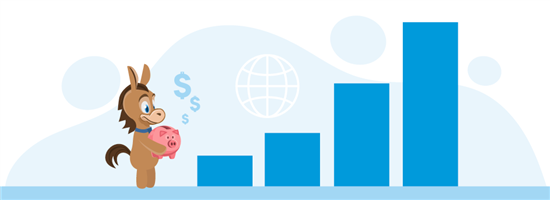 |
If you have more than just a few hundred to invest, putting it all into one CD is not the smartest strategy. You'll have all your cash tied up into a single account with a fixed interest rate. Even worse, you won't be able to access it for a set period of time.
Instead, use a strategy known as CD laddering. In a nutshell, you split up your investments into different CDs with different rates and terms. This ensures that you can always get the best current rate available and regular access to your money. You can also add more money regularly too.
Here's what your ladder strategy may look like:
- $1,000 in a 1-year CD at 2.30%
- $1,000 in a 2-year CD at 2.50%
- $1,000 in a 3-year CD at 2.70%
- $1,000 in a 4-year CD at 2.80%
- $1,000 in a 5-year CD at 2.90%
After the first year, you can withdraw the money plus interest in your 1-year CD. You can then reinvest all that into a 5-year CD.
Another year later, your 2-year CD will have matured, and you can re-invest that into another 5-year CD. Every year, you do the same and thus keep the ladder going.
If need be, you can withdraw money every year. And hopefully interest rates will increase too, so you can always get the best current rate.
You might also consider gifting a CD to a young member of your family. This is great for a new niece or nephew since children usually do not need access to such funds immediately.
You can select the highest yielding CD type for the longest duration (think compound interest here).
Is an Online CD Account Right for You?
Before you stash your money into one of the above CD accounts, here are some things to consider:
- Do you need the money in the near future?
A CD account has specific terms where you cannot withdraw the money before a certain period of time. If you choose a 2-year CD, make sure that you don't need the money before 2 years. There are penalties for withdrawing early.Tip: Set up an emergency fund savings account BEFORE you tie up funds into a CD.Ideally, your emergency fund should contain enough for 3-6 months of living expenses in case of a job loss. An emergency fund is available when you need it. And you don't have to pay any penalties for withdrawing from a savings account.
- How long do you want to hold it?
Generally, CDs are only worthwhile if you are planning to hold them for one year or more (the longer your term, the higher the interest). If you only want to do a 3- or 6-month CD, then you may find that a high-yield savings account offers better rates. - How much money do you have right now?
Remember, you cannot make additional deposits once the account is opened. Make sure you have all the money available to deposit at once.
Check out Wells Fargo, U.S. Bank, Huntington Bank, and Fifth Third Bank.
CD Alternatives
If you're not sure if a CD account is for you, consider these alternatives:
- High-yield savings account
A savings account gives you the flexibility to deposit and withdraw funds as needed. It's good to have for short-term goals and emergencies.Generally, if you only need to save money for a very short time (less than one year), you're better off with a savings account that offers a higher rate.
Check out our list of the top high-yield online savings accounts.
NOTE:Savings accounts limit you to 6 withdrawals per month without penalty under federal law.[7] But that's still a lot more flexible than a CD. - Money market account
This is similar to a savings account but offers freer access to your money. Many money market accounts offer a debit card, ATM access, and check-writing abilities. But they may have higher minimum deposits. - High-yield checking account
Some online banks offer APY on your checking balances. This is great if you need quick and frequent access to your money. Check out our list of the top high-yield online checking accounts. - Bonds
Historically, bonds are low-risk and offer steady returns. If you invest in bond ETFs, you have the flexibility to buy and sell. - Traditional or Roth IRA account
If you're saving for retirement, you can get much higher gains by investing your money long-term. Roth IRAs also have great tax benefits because all interest earned is tax-free. - Real estate crowdfunding is a solid option to invest for the long haul. You pool money together with other investors and lend it to pre-vetted borrowers to purchase pieces of real estate. Depending on the platform and the individual project, real estate investments can last up to 10 years.
Fundrise is a great platform for beginners that requires only $10 to get started.
At the end of the day, you'll have to choose an investment that best fits your plans. You should have a sound portfolio strategy when choosing investment products and alternatives.
CD FAQs
- What is an APY?
APY stands for Annual Percentage Yield, which is the return you get over a 1-year period based on the interest rate and compounded interest (which means that your interest earns interest). Simply put, think of 1.00% APY as 1% yearly interest. - Why do online banks usually offer higher interest rates for savings accounts and CDs?
Online banks don't have physical locations, which means that they have much lower operating costs than brick-and-mortar banks. So they can pass those savings onto customers by offering better rates.But a downside (for some people) is that you can't go to a branch for specialized services or personal attention.
- Can I make withdrawals from my CD?
Generally, you cannot withdraw money from your CD. You are required to hold your funds for a fixed amount of time to earn higher rates. Otherwise, you will pay early withdrawal penalties.If you think there is a good possibility you may need the money, either get a shorter-term CD or just open a regular savings account.
- Can I deposit additional funds once I've opened a CD account?
No, you cannot add funds to your CD after opening and funding it the first time. Usually, you can only add funds to a CD after it has matured during the grace period before the CD renews.Here are alternatives to adding money to your CD you might want to explore. - Can the interest rate change during the CD term?
Generally, no. CDs have a fixed interest rate for the entire term. All banks clearly disclose the interest rate on their website.Some banks offer special "bump-up CDs," which allow you to switch to a higher rate if the APY increased. But of course, it's not guaranteed that the rate will increase during your term.
Ally Bank has a Raise Your Rate CD where you can increase the rate once over 2 years, with no minimum deposit. - What term should I choose?
Choose a CD term that aligns with your financial goals. For example, if you're planning to buy a car in a year, open a 1-year CD so you don't touch those savings.Remember that your money will be tied up the entire term (unless you open a No Penalty CD). Make sure you absolutely do not need the money for the entire term.
- What happens after the CD term is up?
When you have completed the term, you can withdraw your money and all interest. Or you can choose to roll it over into another term.Most banks will give you alerts, so pay attention. In most cases, if you don't withdraw the funds during a certain period, it'll automatically renew for the same term.
- Is a CD or savings account better for me?
This really depends. If you don't need the money anytime soon, then a CD will generally offer a better rate. And it'll also ensure that you won't accidentally spend that money.If you're not sure when you'll need the money, a high-yield savings account gives you more flexibility to withdraw. And if you only have a small amount to start with, a savings account will let you keep depositing money.
- Are you taxed on CDs?
Unfortunately, yes. If you've earned more than $10/year in interest on your CD, the interest is considered income and is taxable at state and federal levels.[8] Usually, your bank will send you a 1099-INT form and you have to report it when you file your taxes.
What the Experts Say
CreditDonkey asked a panel of industry experts to answer readers' most pressing questions on CDs. Here's what they said:
Bottom Line
A CD is one of the safest ways to grow your money over time with a low, predictable rate of return. The rates offered are just about the highest you can get nowadays, for FDIC-insured accounts.
CDs should be included as part of your financial planning strategy. It's a low-risk way to make your money grow a little. Just make sure that you absolutely will not need that money for the term you select. As always, feel free to shop around, compare, and see what you're comfortable with.
References
- ^ Alliant Credit Union. Membership, Retrieved 9/1/2023
- ^ Marcus by Goldman Sachs. High-Yield Certificates of Deposit, Retrieved 1/23/2022
- ^ Wells Fargo. CDs, Retrieved 1/23/2022
- ^ Pentagon Federal Credit Union. Membership, Retrieved 9/1/2023
- ^ Connexus Credit Union. Share Certificates, Retrieved 1/25/2022
- ^ Connexus Credit Union. Connexus Membership, Retrieved 9/1/2023
- ^ Federal Reserve Board. Regulation D Reserve Requirements, Retrieved 1/19/2022
- ^ IRS. Topic No. 403, Interest Received, Retrieved 9/1/2023
Write to Anna G at feedback@creditdonkey.com. Follow us on Twitter and Facebook for our latest posts.
Note: This website is made possible through financial relationships with some of the products and services mentioned on this site. We may receive compensation if you shop through links in our content. You do not have to use our links, but you help support CreditDonkey if you do.
Fundrise, LLC ("Fundrise") compensates CreditDonkey Inc for new leads. CreditDonkey Inc is not an investment client of Fundrise.
|
|
| ||||||
|
|
|






